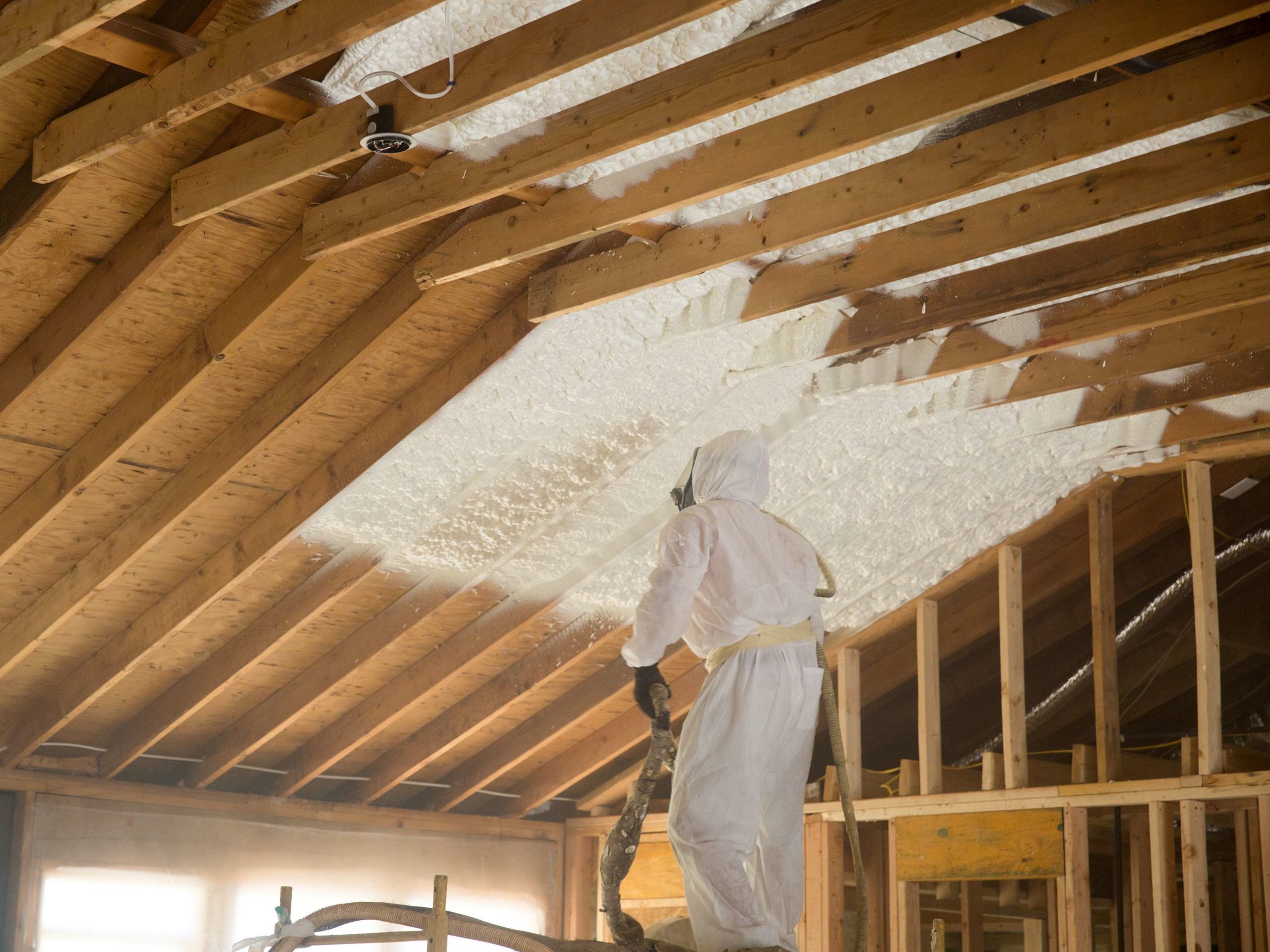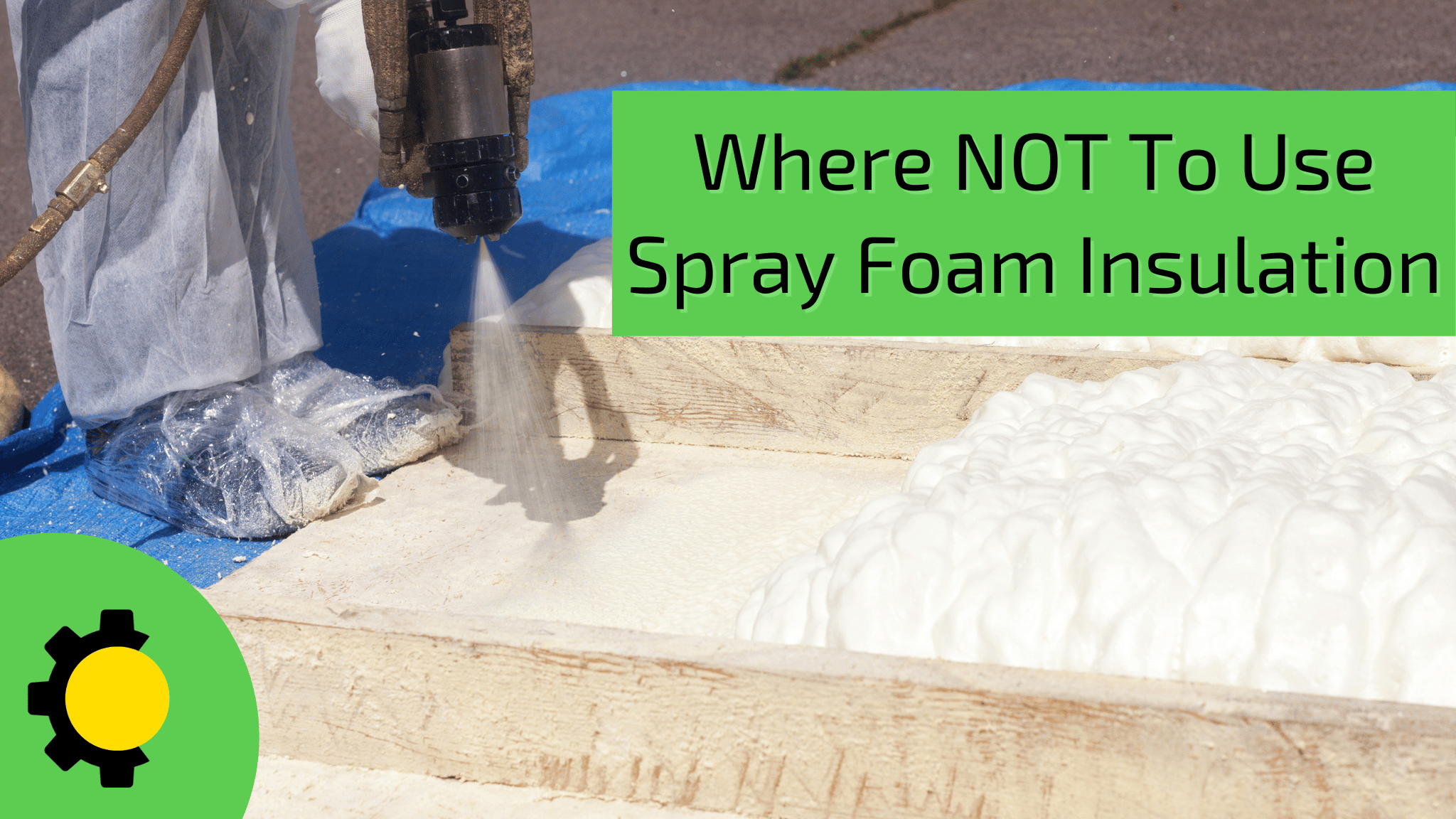How Spray Foam Can Boost Power Effectiveness in Your Home
How Spray Foam Can Boost Power Effectiveness in Your Home
Blog Article
Spray Foam: The Ultimate Option for Air Sealing and Insulation
Spray foam insulation has become a leading service for reliable air sealing and thermal insulation, supplying a special combination of buildings that establish it in addition to typical methods. Its ability to increase and load gaps makes it specifically reliable in protecting against air leakage, which can dramatically affect energy effectiveness. Understanding the complete range of its benefits, installation processes, and contrasts with various other insulation kinds is vital for making notified choices. As we explore these facets, the ramifications for both new constructions and retrofits end up being significantly significant. What variables should affect your selection?
What Is Spray Foam?
Spray foam is a flexible insulation material that incorporates the principles of air securing and thermal resistance to improve power efficiency in structures. Composed primarily of polyurethane or other similar compounds, spray foam is applied as a liquid that broadens upon call with surface areas, creating a solid, continuous layer of insulation. This one-of-a-kind property enables it to fill up spaces, cracks, and spaces that standard insulation products might overlook, giving a premium air seal.
There are 2 main sorts of spray foam: open-cell and closed-cell. Open-cell spray foam is lighter and much more versatile, supplying outstanding noise absorption and a reduced R-value per inch - Spray Foam. On the other hand, closed-cell spray foam is denser, offering a higher R-value, dampness resistance, and included architectural stability to building components
The application process usually includes specific tools, ensuring a smooth application that abides by different substratums, consisting of concrete, timber, and steel. This adaptability makes spray foam appropriate for both new constructions and retrofitting existing structures. Its capability to develop an airtight barrier considerably adds to reducing power usage and improving indoor air high quality, consequently making it a preferred option amongst property owners and contractors alike.
Benefits of Spray Foam Insulation
Among the most considerable benefits of spray foam insulation is its exceptional ability to create a continuous air obstacle, which properly decreases energy loss. Unlike conventional insulation products, spray foam broadens to fill up splits and gaps, guaranteeing that air leakage is dramatically decreased. This characteristic not only enhances power performance however additionally results in decrease utility bills gradually.
Additionally, spray foam insulation offers superior thermal resistance, adding to an extra secure interior atmosphere. Its high R-value per inch enables reliable insulation in restricted rooms, making it optimal for attics, walls, and crawl areas. The moisture-resistant homes of spray foam aid avoid mold and mold growth, promoting healthier living conditions.
Another vital advantage of spray foam insulation is its sound-dampening high qualities (Spray Foam). It efficiently reduces sound transmission between spaces, producing a quieter and a lot more comfy home environment. The longevity of spray foam also sticks out, as it does not sag or resolve over time, keeping its efficiency throughout its life expectancy
Just How Spray Foam Works
Comprehending just how spray foam insulation functions is essential for appreciating its efficiency in air sealing and thermal resistance. Spray foam insulation is composed of 2 key components: isocyanate and polyol resin. When these components are blended, they undertake a chain reaction that causes the material to increase rapidly, producing a dense foam that fills up fractures, dental caries, and voids.
As the foam expands, it complies with surfaces, forming a closed seal that dramatically lowers air infiltration. This particular makes spray foam insulation highly reliable at avoiding drafts and moisture penetration, which can bring about power loss and damages over time. Furthermore, the closed-cell version of spray foam uses superior thermal resistance as a result of its rigid structure, properly minimizing warmth transfer.
The distinct residential properties of spray foam allow it to adapt this post uneven surfaces, ensuring thorough coverage and a smooth barrier. Because of this, spray foam insulation not only enhances energy performance yet additionally adds to enhanced indoor air quality by minimizing the accumulation of toxins and irritants. Inevitably, comprehending the mechanics behind spray foam emphasizes its duty as an exceptional choice for insulation and air securing in both household and commercial applications.
Installation Process Overview

Before setup, the room needs to be appropriately cleaned up and prepped, making certain that surface areas are without dirt, dampness, and debris. Since impurities can endanger attachment and general efficiency, this step is important. As soon as the area is prepared, get redirected here the application includes mixing both parts of the spray foam, which broadens upon get in touch with and fills spaces effectively.
Trained specialists ought to carry out the installation, making use of specific equipment to make certain uniform coverage and ideal density. Safety and security precautions, including wearing protective equipment and guaranteeing proper ventilation, are critical during this procedure. After application, the foam commonly cures rapidly, creating a solid obstacle that enhances energy performance.
Contrasting Spray Foam to Standard Insulation
When reviewing insulation options, spray foam insulation stands out in comparison to standard materials such as fiberglass and cellulose. Among the primary advantages of spray foam is its premium air securing capabilities. Unlike fiberglass and cellulose, which can permit air seepage, spray foam broadens upon application, loading voids and gaps to produce an airtight seal. This causes boosted power efficiency, as much less heated or cooled air leaves the home, leading to reduced energy bills.
In addition, spray foam supplies a higher R-value per inch than conventional insulation kinds, offering more efficient thermal resistance in a thinner profile. This particular is particularly helpful precede with minimal cavity depth. Spray foam is resistant informative post to moisture and mold and mildew development, which can be a significant worry with cellulose and fiberglass, specifically in damp settings.
Nonetheless, spray foam insulation generally carries a greater in advance expense than its standard equivalents. Home owners must evaluate this initial investment versus long-term power savings and efficiency advantages. Ultimately, while both insulation types offer their purpose, spray foam becomes an advanced service for contemporary insulation demands, specifically in terms of air securing and thermal effectiveness.

Verdict
In summary, spray foam insulation represents a highly efficient solution for achieving optimum air securing and thermal resistance. Its distinct residential or commercial properties, consisting of wetness resistance and audio dampening, make it appropriate for various applications in both brand-new constructions and retrofitting projects (Spray Foam). Although the first costs may be greater compared to traditional insulation materials, the long-term advantages, such as considerable energy savings and boosted interior air high quality, warrant the investment and emphasize its value in modern-day building methods.
Spray foam insulation has actually emerged as a leading solution for effective air sealing and thermal insulation, offering an unique combination of residential or commercial properties that establish it apart from conventional approaches.Spray foam is a functional insulation material that incorporates the principles of air securing and thermal resistance to boost power efficiency in structures.When reviewing insulation options, spray foam insulation stands out in comparison to traditional materials such as fiberglass and cellulose. Ultimately, while both insulation types offer their function, spray foam arises as an extra advanced solution for modern-day insulation requirements, particularly in terms of air sealing and thermal performance.
In summary, spray foam insulation represents an extremely reliable service for attaining optimum air securing and thermal resistance.
Report this page